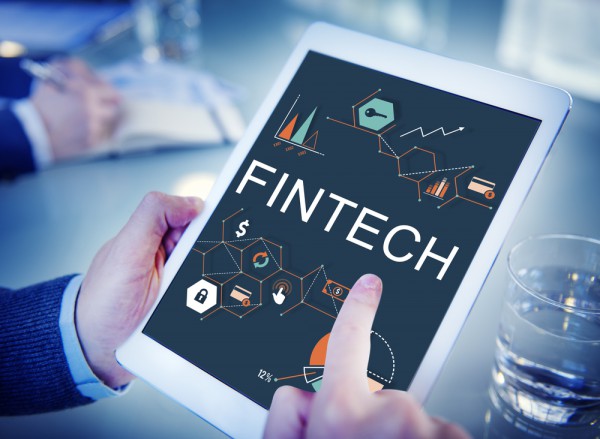Digital banking, biometric payments and more regulation -- fintech predictions for 2023

Like any other industry, the financial services sector is undergoing digital transformation. While banking and finance have historically been quite traditional, pressure from more agile startups has led larger companies to look to tech to stay competitive.
The effect of the COVID-19 pandemic has driven more people to do their banking online too. Here are the key trends that experts expect to see in the fintech sector in 2023.
Will Milewski, SVP, cloud platform engineering at Hyland, thinks digital banking will become even more common. "Legacy industries such as banking and finance have always been slow to adopt new technologies however as we enter this new era of digital transformation, cloud platforms are essential to the success of any financial institution. In 2023 we will continue to see this flourish as more and more niche fintech companies pop up and more customers take their banking digital."
Conor Murray, CEO and co-founder of J.P. Morgan's values-based investing fintech OpenInvest, sees large banks adopting new tchnology solutions too. "More than ever, large banks are providing new, digitally-driven offerings for their customers, and many are looking outside in order to source the latest solutions. By acquiring startups and providing the incentives and infrastructure for startups to exist within them, legacy financial institutions are accelerating their rate of innovation to provide their customers with the features they need to manage their money in ways that reflect a more modern lifestyle."
This view is echoed by Nigel Green, CEO and founder of deVere Group, one of the world's largest independent financial advisory, asset management and fintech organizations. "They have been in a perpetual game of 'catch-up' in recent years amid evolving customer expectations, regulatory requirements and tech advances and this is only expected to pick-up momentum. Why? Two reasons: first, millennials as they are the fastest-growing cohort of clients; and second, because they are becoming the beneficiaries of the greatest transfer of wealth in history."
Green also thinks we'll see more regulatory scrutiny. "This will come about as fintech services are increasingly embedded within non-regulated entities. As such, watchdogs around the world will be seeking to further protect customers by ramping up regulations, with a particular focus on accountability and transparency."
Elizabeth Kowal, chief operating officer of MineralTree, thinks there will be more regulation too, but that its effect will be limited. "More regulations are coming into play to limit the possibility of fraud from occurring the way we know it today. However, this means finance leaders and staff need to be more vigilant about how scammers will evolve. New protections only last for a short amount of time before bad actors learn new methods to trick people. Businesses need to minimize manual processes to ensure security. And employees must be reminded to trust nothing; double check phone numbers; carefully review all links before clicking on them; don't accept payment instruction changes from an email alone."
Victor Fredung, CEO of Shufti Pro expects biometric payments to become the norm:
It's clear that fintech is booming with the multitude of repayment plans and online finance options available today, and all of these various platforms require user verification. With options including biometrics and blockchain, all whilst maintaining a seamless user experience, what does the future of fintech look like in 2023?
By virtue of Apple's face ID, biometric payments is fast becoming the norm for consumers who value speed and security. Despite it being a relatively new technology, 92 percent of users believe biometric recognition is more convenient than passwords, and a majority trust face recognition as a secure way to authorise transactions. We are already seeing global payment companies piloting 'pay with your face or hand' schemes, and once the technology becomes more mainstream it is only a matter of time before card payments are a thing of the past -- a bit like how we see paying with cash now. However, because we'll see this become the norm in only a matter of years, the security behind biometric transactions needs to be flawless so that privacy isn’t compromised.
André Ferraz, CEO at Incognia, thinks instant payment systems will bring new risks. The adoption of instant payment systems in specific international markets has set a precedent for the US as it plans for the launch of FedNow in mid-2023. As seen abroad, the instant payment service will attract cybercriminals armed with complex social engineering tactics looking to profit from the speed and flexibility that instant payments bring to transactions. Just as the recognition of rampant Zelle fraud has started the liability shift back to banks, the rollout of FedNow will likely continue the pendulum swing and perhaps even begin holding receiving banks accountable for instant payment fraud, like what is currently occurring in Brazil, two years after the launch of PIX, its open banking system.
Photo Credit: Rawpixel.com/Shutterstock
